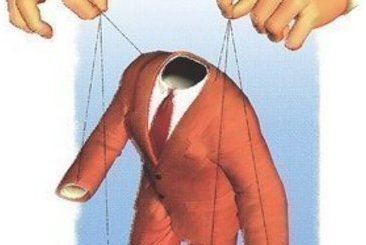Guest Post by Josh Linkner

We’re often encouraged to “lead by example,” and that through your explanations of various tasks at hand or answers to conundrums, your team members will grow.
While good leaders may voice a solution when a problem rears its ugly head, great leaders ask their teams how to solve it. By framing a problem around appropriate questions, your team will discover the right answers on its own terms, rather than simply being told. This fosters ownership, autonomy, and feelings of success – all crucial ingredients toward a healthy and productive group.
Interestingly enough, the act of asking (as opposed to answering) questions is more difficult and requires a tremendous amount of logical, tactical thinking on your part. I’ve often said that while anyone can notice wrong answers, it takes the creative person to notice the wrong questions. By positioning a challenge in a way that your employees have a chance to figure it out on their own terms, you’ve gifted them the ability to truly absorb the information for next time. Days, months, or even years from now, those employees will then be able to recall events from this problem-solving experience as a pattern to repeat as needed.
- What is everything thinking, but nobody has the courage to say?
- If this venture/project/new hire turns out to be a failure in a year, what will be the root cause?
- If we were going to take that up an order of magnitude, then what would it look like?
- If someone was going to come along and put us out of business, what would he or she do?
- What if we did the opposite?
- Take your biggest concern. Ask “why.” Then repeat asking “why” four more times.
- If we weren’t going to behave, what would we do?
- What are the three things that are holding us back right now?
- If there were zero chance of failure, what would we do?
- What if it was an AND, and not an OR?
- Are we focusing on preserving the problem to which we are a solution, or are we innovating our way to success?
- If we could start over with a blank slate, what would we do differently?
- What do you need from me in order to help you reach your full potential?
In this way, it’s no different than the age-old parable that if you give a man a fish, he’ll eat for the day, but if you teach a man to fish, you’ve fed him for a lifetime. If it is the case for our basic survival mechanisms – that we must learn to do something on our own – it’s clearly applicable with our creativity, innovation, and problem-solving abilities. By involving your team members they’ll absorb the same skill-sets needed later in their careers, no different than fishing.
Josh Linkner is on a mission to help the world unleash its creative mojo. The five-time successful tech entrepreneur and CEO/Managing Partner of Detroit Venture Partners delivers a clear call to action — it’s better to disrupt your organization before your competition does. The riskiest move companies can make today is hugging the status quo — believing the future will be like the past is the fast road to obsolescence. You can connect with Josh at JoshLinkner.com Follow Josh’s blog at: JoshLinkner.com/blog




















